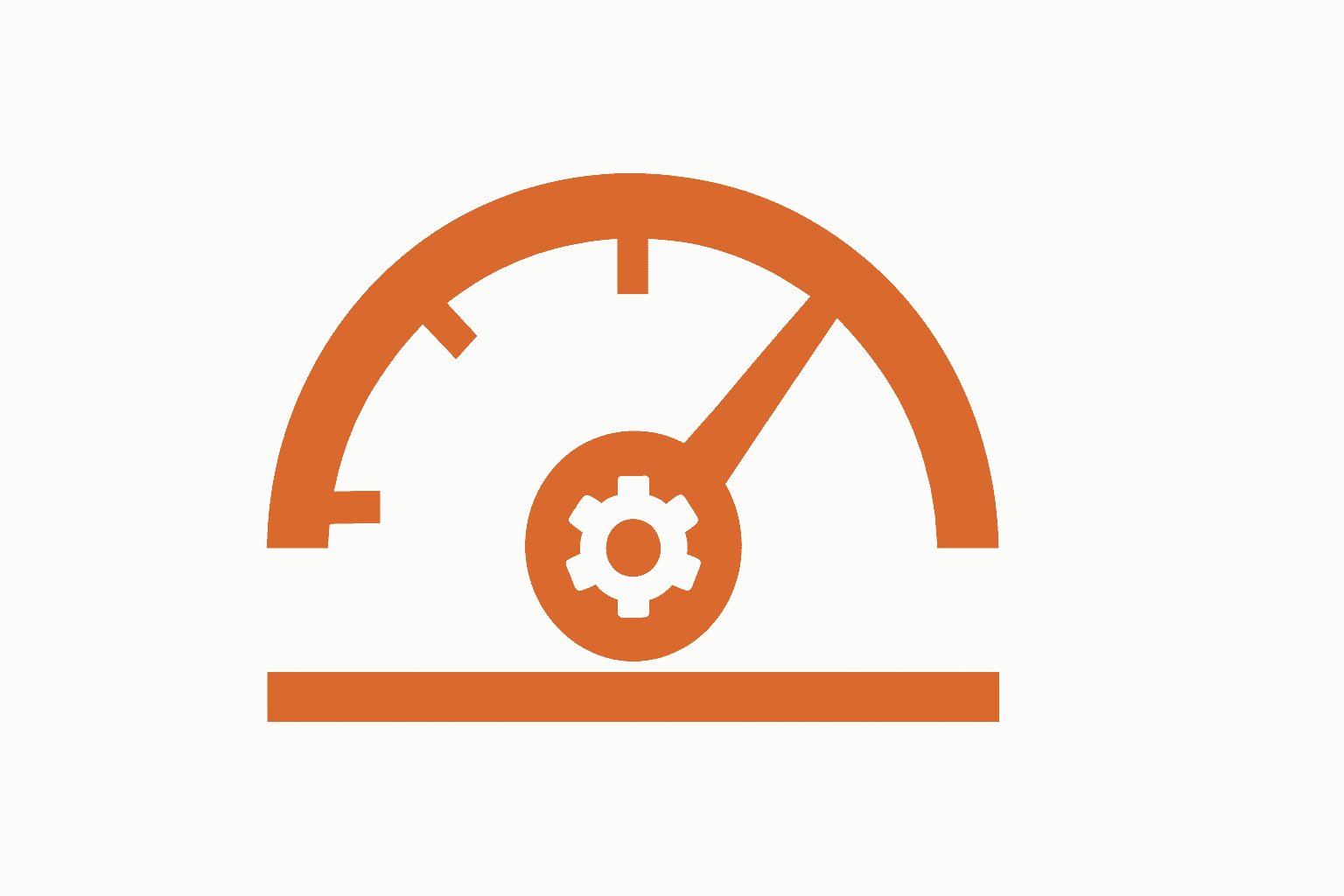Biggest Legal Pitfalls in U.S. HOAs and How to Avoid Them
HOAs can face legal trouble from mismanaged boards, fair housing violations, sloppy finances, inconsistent rule enforcement, or poor record-keeping. This article outlines these common pitfalls and provides practical solutions – like updating your governing documents, keeping finances transparent, educating board members on legal duties, and using fair conflict resolution methods – to help U.S. HOA boards avoid lawsuits and run their communities smoothly . By following best practices and staying compliant with state and federal laws, both self-managed and managed HOAs can protect themselves and foster a happier community.

Homeowners associations (HOAs) play a vital role in maintaining communities, but they also operate under a complex web of laws and regulations. Mistakes in governance can land HOAs in serious legal trouble. While specific HOA laws vary by state – for example, California’s Davis-Stirling Act or recent Florida statutes mandating board education and record-keeping – all HOAs must follow certain fundamental rules. Federal laws like the Fair Housing Act apply nationwide, and general principles of corporate governance and fiduciary duty apply in most jurisdictions.
This article examines the biggest legal pitfalls facing U.S. HOAs and provides practical, best-practice solutions to help both self-managed and professionally managed associations steer clear of costly disputes. The goal is to empower HOA boards and managers with actionable advice to maintain compliance, transparency, and harmony in their communities.

Common legal pitfalls in HOAs
1. Board mismanagement
One of the most significant risks for any HOA is mismanagement by the board, which often manifests as a breach of fiduciary duty. HOA board members have a legal obligation to act in the best interest of the association and its members. This fiduciary duty includes the duty of care (making informed, prudent decisions) and the duty of loyalty (avoiding conflicts of interest). When boards act negligently – for example, ignoring the governing documents, making self-serving decisions, or failing to due diligence on contracts – homeowners can sue for breach of fiduciary duty. In extreme cases, board members may even face personal liability if they are found to have acted with gross negligence or fraud. Common mismanagement issues include abusing authority, playing favorites, or conducting HOA business in an opaque manner. Not funding reserve accounts adequately is also a form of mismanagement; in California, a court deemed an HOA board’s failure to fund reserves a breach of fiduciary duty. To avoid this pitfall, boards must govern ethically, follow their own rules, and document their decisions to show they are acting reasonably.
We’ll discuss specific prevention strategies (like board training and clear policies) in the best practices section below.
2. Fair housing act violations
HOAs must comply with the Fair Housing Act (FHA), which prohibits housing discrimination based on protected characteristics such as race, color, religion, sex, familial status, national origin, and disability. A common legal pitfall is when an HOA – knowingly or unknowingly – enacts or enforces rules that discriminate or have an unfair impact on a protected group. For example, making rules that effectively bar families with children from using certain amenities or failing to allow reasonable accommodations for a resident’s disability can trigger discrimination claims. Homeowners or prospective buyers who feel they’ve been treated differently due to a protected trait can file complaints or lawsuits, and HOAs may face HUD investigations or enforcement actions in addition to civil litigation. Even “selective enforcement” of otherwise neutral rules can appear discriminatory – for instance, if an HOA enforces a minor violation against one homeowner but not another under similar circumstances, it could be seen as bias. To avoid Fair Housing violations, HOAs should review all policies (especially on things like occupancy, pet restrictions, or disability accommodations) for compliance and ensure rules are applied evenly. Tolerance, diversity, and fairness must be more than slogans – they should be built into the HOA’s decision-making process.
3. Poor financial oversight
Financial mismanagement is another major legal pitfall for HOAs. Boards are entrusted with homeowner dues and HOA assets, and must handle them with transparency and care. Poor financial oversight can take many forms: failing to collect assessments properly, lack of budgeting or reserve planning, commingling or misusing funds, or simply not keeping accurate financial records. Such missteps can lead to lawsuits from homeowners who suspect mismanagement. For instance, if an HOA runs a deficit or imposes a special assessment because it failed to maintain adequate reserves, members may claim the board breached its fiduciary duty. In extreme cases, embezzlement or fraud by a board member or manager has led to legal action and even criminal charges. Even without malfeasance, lack of financial transparency erodes trust and invites disputes. Homeowners have a right to know how their money is being used, and in some states they can request a financial accounting – failure to provide it may incur penalties. Additionally, problems with assessment collections can become legal issues. HOAs that don’t have a clear, lawful process for handling delinquent dues (for example, following required notice procedures or limits on late fees and liens) might face countersuits from homeowners during collections. On the flip side, if the HOA is too lax and lets certain owners slide on payments, it can create a cash flow crisis and allegations of favoritism. The key is to have sound financial policies, regular audits or reviews, and to follow state laws for HOA finances (some states require audits or reserve studies).
We’ll cover specific financial best practices later.
4. Failure to enforce rules consistently
HOA governing documents (CC&Rs, bylaws, rules & regulations) set the standards for the community. Failing to enforce these rules consistently is a recipe for legal trouble. If an HOA turns a blind eye to some violations or enforces rules arbitrarily, members can claim “selective enforcement” or even decide that the HOA has abandoned a covenant, undermining its ability to enforce it in the future. For example, if one homeowner is allowed to keep an RV in the driveway in violation of the rules, another homeowner cited for a similar violation might argue the HOA’s action is unfair or discriminatory. Inconsistent enforcement not only breeds resentment but can also weaken the HOA’s position if a violation ends up in court – judges may question why the rule is enforced only sometimes. On the other hand, an HOA that fails to enforce important restrictions at all (such as maintenance standards) might be sued by homeowners who see their property values affected . In one case, a court affirmed a homeowner’s right to sue the HOA to compel it to enforce the restrictions in the CC&Rs. Clearly, uniform and fair enforcement of rules is critical. HOAs should establish a clear enforcement policy (with warnings, fines, hearings, etc. as permitted by law) and apply it equally to everyone. Consistency not only avoids legal liability but also reinforces the integrity of the HOA in the eyes of the community.
5. Transparency & records retention issues
Many legal pitfalls stem from a lack of transparency in HOA operations – specifically, not keeping proper records or not allowing members access to records. Most state HOA statutes (or bylaws) require boards to maintain certain documents (meeting minutes, financial records, contracts, etc.) and to let homeowners inspect and copy these official records upon request. If a board fails to maintain records or refuses to provide records to a member, it can face legal consequences. Owners have successfully sued HOAs for access to records; some state laws impose statutory fines for each day an HOA wrongfully withholds records. For example, Florida law now clarifies that most HOA records must be retained for at least seven years, and failure to allow a member to inspect records can even lead to penalties. In extreme scenarios, deliberate opacity (like conducting all business in closed meetings or via email without minutes) fuels mistrust and can violate “sunshine” requirements many states impose on HOAs (such as open meeting laws). Records retention is equally important: losing key documents or not having a paper trail of decisions can hurt the HOA’s position in any dispute. Imagine a lawsuit over an architectural change approval – if the board has kept no records of past approvals, it will struggle to defend against claims of inconsistent treatment. Likewise, poor record-keeping can impede financial oversight and transition between board members or management companies. In short, lack of transparency is at the heart of many HOA-member conflicts. The solution is straightforward: maintain organized records, follow any state-mandated retention schedules, and operate with openness (share information on budgets, projects, and decisions regularly with members). Not only does this prevent legal issues, it also fosters member trust – the cornerstone of a healthy association.
Best practices to avoid these pitfalls
Having identified the common pitfalls, HOAs should adopt best practices to prevent issues before they escalate. These strategies will help boards stay compliant with the law and maintain positive community relations.
1. Clear, updated governing documents
Many HOA problems can be traced back to vague, outdated, or inconsistent governing documents. It’s essential to have clear bylaws, CC&Rs, and written policies – and to update them as laws change. Governing documents should spell out board powers, owner rights, enforcement procedures, maintenance responsibilities, etc., in plain language. Ambiguities in these documents can lead to conflicts or even legal challenges over interpretation. HOAs should work with legal counsel to review their documents periodically (e.g. every few years or when major legislation changes) to ensure compliance with current state law and to close any loopholes that could be exploited. Clear rules and regulations that align with state and federal law (for instance, rules that don’t inadvertently violate fair housing or free speech rights) will reduce the risk of litigation. When drafting or amending rules, get community input if possible – it increases buy-in and reduces the likelihood of disputes. Once rules are set, publish them and educate homeowners on the content. An informed membership is less likely to violate rules out of ignorance.
In summary, think of solid governing documents as the foundation of HOA legal health: if they are clear and followed consistently, many potential pitfalls (selective enforcement claims, maintenance disputes, etc.) can be avoided or swiftly resolved.
2. Proper financial planning & transparency
To avoid financial missteps, HOAs should implement strong financial controls and transparent accounting practices. Start with a realistic annual budget that fully accounts for routine expenses and contributions to reserves for long-term projects (roof replacements, paving, etc.). Conduct reserve studies as required (or as needed) so the association isn’t caught short on funds for major repairs – having a well-funded reserve not only avoids special assessment surprises but also shields the board from claims of negligence. Establish an investment policy for reserve funds (following any state restrictions on HOA investments) and ensure dual sign-offs or board oversight on expenditures to prevent misuse. Regular financial reports should be provided to homeowners – many HOAs do this quarterly or at least annually at the meeting.
Transparency is key: owners should feel confident that their money is managed prudently. In fact, Florida’s new HOA laws even allow owners to request a formal financial accounting and require a response within 15 business days. While not all states mandate that, it’s a good practice to honor reasonable information requests about finances. Also, consider having an annual outside review or audit of the HOA’s books by a CPA (some states require this above a certain budget threshold). Independent reviews catch errors and bolster credibility. For assessment collections, adopt a clear policy consistent with state law – outline when late fees apply, when a delinquent account is turned over to a collections attorney or when a lien will be filed. Follow fair debt collection practices and treat all owners uniformly to avoid legal pushback. By planning ahead, staying on top of dues, and being open with the community about the HOA’s financial status, boards can greatly reduce the risk of financial disputes or accusations of mismanagement.
3. Legal compliance training for board members
HOA board members are often volunteers – well-meaning homeowners who may not be experts in community association law. Providing training and education for board members can dramatically cut down on legal mistakes. Board members should at minimum familiarize themselves with the association’s governing documents and the state’s HOA/condo statutes (if any). Many state or local HOA organizations (like the Community Associations Institute) offer workshops, and law firms often hold seminars on common legal issues for HOAs. Key topics include understanding fiduciary duty, open meeting requirements, fair housing compliance, contract basics, and dispute resolution. Some states have started to require board education: for example, a recent Florida law mandates that new HOA board members take a class and get certified within 90 days, plus ongoing continuing education (4 hours annually for small HOAs, 8 hours for large ones). Even if not required in your state, it’s wise to encourage or fund training for your board. Additionally, maintain a relationship with the HOA’s attorney for quick consultations – a short call before taking a questionable action can prevent a costly legal entanglement later. Part of “training” is also internal: establish a culture of ethics and professionalism on the board. Consider adopting a code of conduct. Emphasize that personal agendas must be set aside and all decisions should be in the community’s best interest . When new board members are elected, provide them an orientation: go over ongoing projects, current contracts, and recent legal issues. Well-informed board members who know the “dos and don’ts” are far less likely to lead the HOA into lawsuits. Remember, ignorance of the law is not a defense – so proactive education is the best prevention.
4. Effective communication & conflict resolution strategies
Even with the best policies, conflicts in an HOA are inevitable. What matters is how the HOA handles them. A best practice is to have established conflict resolution mechanisms to address disputes with homeowners before they escalate to legal action. This can include an internal dispute resolution process – for example, if an owner has a grievance (say, they feel they were wrongly cited for a violation or have an issue with a neighbor), provide a forum to hear them out, such as a hearing or meeting with a committee. Many HOAs create a grievance committee or use an ombudsman to resolve issues informally. Mediation is another powerful tool: if a disagreement can’t be resolved internally, propose mediation with a neutral third party. It’s typically far cheaper and faster than litigation, and many states encourage or even require mediation for certain HOA disputes. By actively listening to member concerns and addressing them in good faith, HOAs can often avoid lawsuits altogether. Also, keep communication channels open: inform residents about important board decisions and rule changes (transparency can prevent the feeling of “us vs. them” that leads to conflict). Publish newsletters or emails, hold Q&A sessions, and encourage attendance at board meetings. When homeowners feel heard and informed, they are more likely to cooperate or at least seek dialogue instead of a legal confrontation. Finally, when conflicts do arise, don’t take it personally – boards should remain professional and seek solutions, not retaliate or get defensive. If a mistake was made, own up to it and correct it (for instance, if a fine was issued in error, rescind it). An HOA that shows reasonableness and willingness to remedy issues will find it defuses tensions. In summary, make resolution, not victory, the goal of any dispute handling – a collaborative approach will save the HOA from many legal headaches and preserve community peace.
Final takeaways
Running an HOA legally and effectively is challenging, but not impossible. The common pitfalls – from board mismanagement and financial improprieties to unequal rule enforcement and lack of transparency – can all be avoided with a proactive, education-focused approach. Remember that state laws set the framework (and these differ across the U.S., so know your state’s requirements ) while federal laws like Fair Housing provide non-negotiable standards of fairness. When in doubt, boards should consult professional advice from HOA attorneys or experienced managers, especially for complex issues like ADA accommodations or pursuing legal remedies against owners. Always document the board’s actions and rationale; documentation can be your best defense if your decisions are later questioned. By adhering to best practices – maintaining clear documents, being financially transparent, training your volunteers, and communicating openly – an HOA can significantly reduce its legal risks. The outcome is worth the effort: a community that runs smoothly, stays out of court, and preserves property values and neighborly relationships. Both self-managed and professionally managed HOAs thrive when they foster a culture of compliance, consistency, and cooperation. In short, the best way to handle legal problems is to prevent them, and prevention comes from knowledge and good governance.








